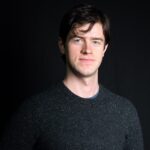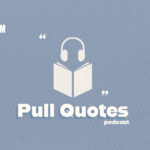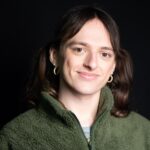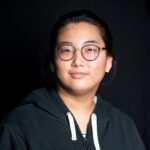Silas Le Blanc: North Korea has been a fascination of Western media for decades. Given that people are rarely ever able to cross the country’s borders, people are relying on the news media for a lot of their information on the country. Over the years, much of the reporting on North Korean affairs has relied on sensationalism, the coverage revolves around a few predictable topics such as missile testing and nuclear weapons. However, most prominently featured is reporting on its leader Kim Jong Un, usually some quirky development about the eccentric and–as we’re constantly reminded–overweight dictator. And if it’s not about Kim Jong Un, then you’d be hard pressed to hear about it at all. The citizens of North Korea are seldom heard from. At best, North Koreans are portrayed as hapless victims. At worst, they’re mindless mass who treat their dictators’ words as gospel. However, most often their existence is barely acknowledged. As the world struggles to keep up with endless news feeds, there’s no room to think about the real lives and plights of 25 million North Koreans when news organizations all over the world, focus almost exclusively on their outlandish dictator.
[Pull Quotes theme plays quietly under the intro]Tara De Boer: Hyeji Yoon wrote a piece for the Review of Journalism about where the Western media fails when it comes to reporting on North Korea. She spoke to several North Koreans to get their perspective and explore the damage that this kind of sensationalist reporting can do. Silas sat down with Hyeji to learn more about her reporting process, how she was able to find these sources, and why our media has such a strange fascination with this country. Welcome back to the sixth season of Pull Quotes. Here’s episode five. We’re your hosts Tara De Boer, Silas Le Blanc, and Tim Cooke.
SL: Hi, Hyeji
Hyeji Yoon: Hi Silas, how are you doing?
SL: Good. How are you?
HY: I’m good. Thanks for having me today.
SL: Of course. Yeah, I guess before we start talking about your story, specifically, can you talk a little bit about your kind of background in journalism as well as what you, kind of, like reporting on?
HY: So, I wouldn’t say I have like a very extensive background or anything. Yeah, I think this program, –I’m an undergraduate–I think this program is basically all of the background I have and then did some walking around interviewing people, first [year], and then the pandemic hits. So, the rest of my undergraduate was pretty much done remotely. So, I think I have about as minimal background as you can get in journalism.
SL: What kind of topics do you typically enjoy reporting on?
HY: So, it depends on my mood, honestly, I do tend to focus on more like social justice in that area. Giving a voice to like, minorities is a special interest of mine. But I also like to tackle more lighthearted subjects, and then stuff like in niche categories that maybe other people might not be as interested in.
SL: Yeah. Can you tell us a little bit about your story that you are publishing in the Review of Journalism this year?
HY: So it’s called ‘Covering North Korea.’ The story is sort of an overview-slash-criticism of how mainstream media, specifically Canadian mainstream media, covers North Korea, its practices and methods and how that has translated into the public, wide perception of the country and its people. Or the lack of their perception of its people. In this case.
SL: What made you want to pursue this topic? What kind of inspired you
HY: So, I wouldn’t say it’s anything specific. It’s weird to say, I guess, you know how everyone just has like, the thing that they have inside their heads, like they just think about it constantly. For whatever reason, I think North Korea is one of those topics, especially since, you know, it’s come up in media a lot every once in a while and then you know, there’s some talk about and then it dies down, then just sort of leads a new cycle for a couple years until Kim Jong Un starts throwing more missiles in the air. I think specifically North Korea is, less, I’m thinking specifically about it, and more of a Korean consciousness sort of. You’d be hard pressed to find any sort of Korean who doesn’t think about North Korea in some way? Yeah, South Korean.
SL: What are kind of like the preconceived notions that people have about North Korea?
HY: I want… I don’t want to speak on authority of what they think in South Korea, but I know here in Canada, there’s a lot of… well, most people don’t really think about North Koreans in general. I know. I know a lot of people just default to thinking Koreans are all South Korean, here. Even less about like, the people as a whole and more about like, ‘oh, did you hear Kim Jong Un did this’ or like, like, ‘how do you feel about the missile crisis?’ [laughs] Like oh, like ‘how did you get here? Was it hard?’ you know, stuff like that, right? So less about the people themselves and more about, I guess… more about like what those people know about North Korea, which are very, a very limited scope of things.
SL: Yeah, that’s like, interesting that you kind of mentioned that, because it seems like a big theme of your story is like, we talk a lot about North Korea, but we don’t really talk about North Koreans. So, yeah, I guess one thing you mentioned, especially in in the kind of lead of your story is the sort of like gossip-like tabloid aspect of it, how a lot of the reporting that goes on is–one thing you mentioned–is like Kim Jong Un’s weight specifically is like a very big topic of discussion in media outlets, in Canada, but also just kind of like worldwide. You know, why, do you think that is? Why do you think there’s such a like, large focus on just kind of like the trivial aspects of North Korean society.
HY: So, there’s this… I think it’s sort of a mix. So, journalists do want to report the truth. Generally. I think that’s something I can say for any journalists out there. What they don’t like doing is speculating on, like motives, or like stuff like that, which is fair. But what happens is, if they don’t rely on, let’s say, reliable sources, the next best thing they can do is see what they can personally get a hold of, and infer information from that. And a lot of what you see from North Korea state media itself is Kim Jong Un. And he doesn’t really divulge a lot of information about himself, but you can see his physique, you can see his weight, you know, how you he’s strutting around. Whether his ankle is… whether he’s like, whether he’s like, limping his ankle, or whatever. And then people can infer stuff from that and then say, ‘Kim Jong Un lost weight,’ which is fact, ‘which can mean x, y, z,’ and then you know, other people pick that up, and then they go to town with it. But it’s not technically like, the journalist’s fault for you know, just stating facts.
SL: What were like the biggest challenges writing the story, what was like your research process like?
HY: Definitely the biggest challenge was finding sources. Well, it’s hard finding North Koreans to talk to first of all. I had to resort to like, basically asking my family, and then like, asking them to for any like North Korean contacts, or like asking them for contacts who had North Korean contacts, etc. I think that was like the biggest hurdle of the story itself. It was also a bit of a struggle with finding the… I guess the main point, because there’s obviously a lot about North Korea that I haven’t even touched in the story itself. And I had a bit of trouble finding that focus, like what I wanted to tell the audience. And also what from the few North Koreans I spoke to, what I thought they wanted to tell Canadians as a whole.
SL: Can you talk a little bit about like the people you spoke to? You know, like, who were like the characters in your story?
HY: So the people I could access the easiest were definitely activists, and also journalists who covered North Korea. There are a couple that didn’t make it into the story, but I talked to a couple of international journalists, Saša Petricic, for one, about their process for covering North Korea, how they approach such a difficult topic, which I got a lot of insight out of. Secondly were the activists, I wanted to get a bit of opinion from them and like, see what they were also hoping would be more widely known by the Canadian populace to get that perspective. This was mostly back when I couldn’t access any North Koreans at all. So, they were sort of like a supplementary or secondary source for that area. And then when I could actually talk to North Koreans, Rocky Kim, or Kim Rok Bong in the story, and I also talked to another North Korean, completely off record. But yeah, when I talked to them, I made sure to really ask them, like, what they wanted Canadians to know, what experiences they went through. I just really wanted to hear their perspective of the whole situation and like how they felt as people or citizens in Canada.
SL: One thing I think that kind of came across on your story, is that it’s like really hard to find, like accurate information about North Korea. And it’s also like you said, like, kind of hard to talk to, like, actual North Koreans, like actual people who have like, lived experience with this kind of stuff. So yeah, how did you like go about like verifying, like, the accurate information as well as just like, how did you like find people, end up finding people to talk to
HY: verification is still pretty spotty, I’d say. I tried to triangulate as much as I can. Find several sources for the same information. And if I couldn’t find it, sometimes it did take them at their word, because I feel like for some things, they really are, like the best source for it. And I was willing to meet them a bit more than halfway for that. Obviously, using as much journalistic integrity as I could and like, you know, trying to confirm as much as I can. But in the cases where it was a bit more spotty, I tried to play around that, tried not to keep it too specific, but also tried to keep the information in so that the point of the story would come across. As for how I accessed some of the sources in question, namely other North Koreans, I mentioned before, but I did have to resort to asking my parents. They’re are a lot more involved in the wider Korean Canadian community and through them, I managed to contact a North Korean friend of hers who had a North Korean contact willing to talk with me. And then from that North Korean contact, they referred me to Rocky Kim, Kim Rok Bong. So yeah, that was sort of my journey to finally getting some actual North Korean voices in the story.
SL: When you talked to these sources. Was there anything that kind of jumped out to you in terms of like, what’s missing from the media coverage? Is there anything that you learned maybe some, like preconceived notions that you had that were kind of broken when you actually started speaking to them and hearing their experiences? Or even just like was there anything that kind of like, surprised you?
HY: It’s a bit weird to say, like preconceived notions, if only because there weren’t that many when I went in, I feel. Just because like North Korean news is so slim. As far as any news about any North Koreans in Canada is like so slim. There weren’t a lot of preconceived notions that I felt like I had when I went in. It was pretty harrowing, sometimes, to like, listen to their experiences. Not only coming here, but like dealing with Canadian government. I think if there’s one thing that did rock my preconceived notions, it’s just how varied their experiences can be. Does that make sense? Like even though, even like South Korean media, news media, tends to sort of focus on a lot of same talking points for North Korean refugees. They have their own experiences, each and every person had different experiences when they came to Canada. And like, I felt like that kind of came through when I talked to them.
SL: Yeah. And just finally, what do you want people to get out of this story? Is there anything that you want readers to kind of get out of it specifically?
HY: How do I say this? It doesn’t get sounds cool, weird quote, weird out of context quote. But I want… I don’t actually necessarily want people to focus. I don’t want people to focus extensively on North Korea, just because it’s article. I think one thing that got pointed out pretty early on in the making of story is that this narrative of ‘X country’s citizens are ignored for the sake of a few people in power,’ is a very common narrative, just all around the world, right? In many different countries. And I think as much as I wanted to highlight the specific circumstances of North Korean refugees, and how they’re being treated by the media, I want people reading that story to think not just ‘oh so does this sort of stuff happening with North Koreans?’ But also thinking, what are people from other countries or like other nationalities also experiencing at this time and like, sort of broadening their perspective outside of what they think Canada is?
SL: Okay. Yeah. Thank you for joining us today.
HY: Thank you for having me.
SL: Of course.
[Pull Quotes music plays]
SL: Thank you so much for joining us for this episode of Pull Quotes. Big thanks to our producer Angela Glover, executive producer Sonya Fatah and our fact checker Stephanie Davoli. We’re your hosts Silas Le Blanc, Tara De Boer and Tim Cooke. We’ll see you next week.









